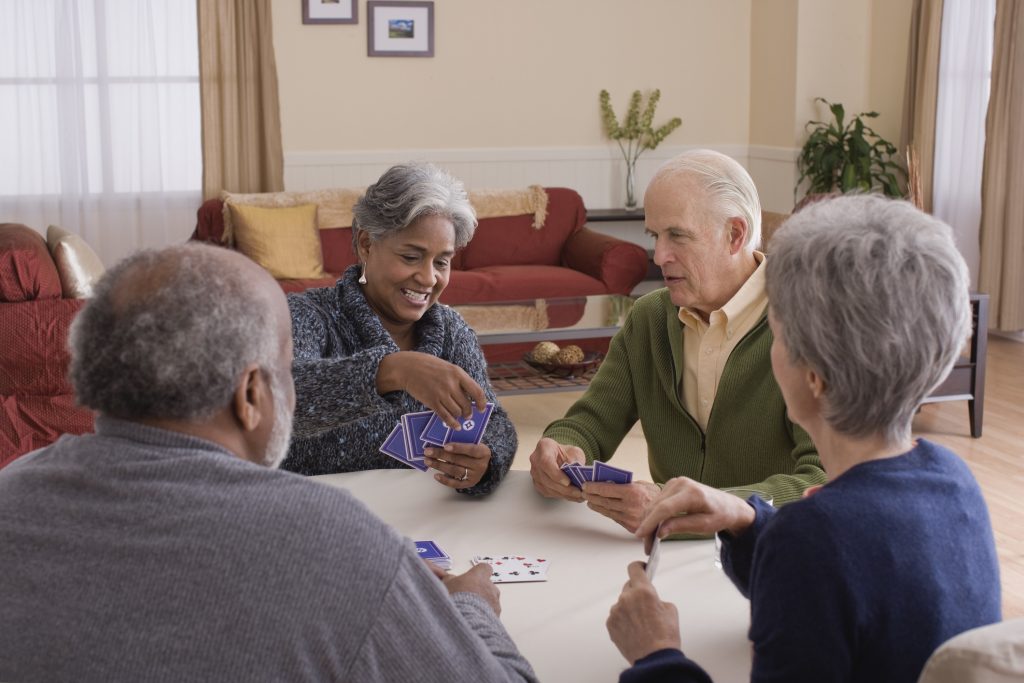
Improving memory skills is a lifelong endeavor that becomes even more important as we age. And while illnesses such as dementia and Alzheimer’s are certainly more common in the aging population, getting older doesn’t have to mean losing your mental agility.
The brain is capable of producing new cells at any age. However, as we grow older, we often find our routines and daily lifestyle changes. These shifts—like leaving the regularity of the daily workforce, for example—often mean using memory and regular recall skills less frequently. Like any other muscle, if we don’t use it, we lose it.
Here are five activities that are proven to maintain or even grow your memory “muscles” at any age.
1. Jigsaw puzzles

Puzzles are a great tool for both caregivers and seniors alike. They’re an activity that can be done together, adding a healthy social component, while also benefiting the brain. When you do a jigsaw puzzle, both sides of the brain must work together; the creative, problem-solving portion helps consider which pieces might work through an image or other clues, while the spatial-logic side will apply reasoning to which pieces might fit where and why. The brain must find patterns and reason throughout the process while recalling pieces it has already seen, and even the approach to beginning a puzzle gives the brain an opportunity to pick out patterns and practice reasoning.
2. Physical activity
Blood pressure is often a concern among the aging population for a variety of reasons—one of which includes memory function. Decreased blood flow to the brain can lead to changes in cognitive ability and memory ability. Physical activity is an important factor in overall blood flow as well as managing blood pressure. There are countless options out there. Find one you love, and you’ll be on your way to maintaining great memory skills, along with a plethora of other benefits.
3. Playing cards

Most active adult communities feature a variety of activities on their social calendars, and card games are undoubtedly on the schedule rather frequently—and for a good reason! They’re played socially, and social activity in itself is important to healthy aging and cognitive ability. They also demand a certain level of skill that helps keep the brain active. Most card games require players to apply an element of logic to assess risk and reason out which card to play, as well as the memory to recall cards previously played and those in the hand.
4. Dancing

Countless studies have found dancing benefits memory and overall cognitive function. Dance involves rhythm and patterns, both of which challenge the logical-thinking brain, while creativity and the need for movement challenge other areas. Those patterns and the ability to learn new steps and choreography all tie into learning and memorization. Not to mention, dance is a physical activity, so it truly does help both body and mind (and for many, soul!).
5. Word and logic games
Activities like Sudoku, Kakuro, and crossword puzzles are all great activities to keep the mind active. Beyond testing general knowledge, they require plenty of logic, critical thinking, and decision-making skills.